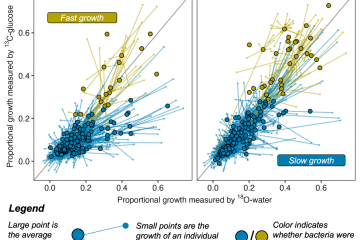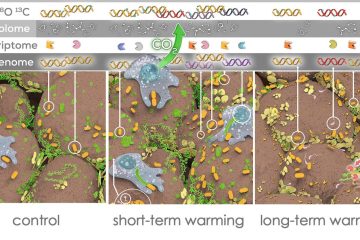Quantitative stable isotope probing with H218O to measure taxon-specific microbial growth
Microorganisms in soil assimilate, transform, and mineralize soil C to support growth. There are an estimated 2.6 × 1029 microbial cells containing 26 Pg C in soils worldwide. Consequently, quantifying microbial growth in soil is critical for determining the degree to which microorganisms contribute to the global C cycle. Measuring taxon-specific microbial growth enables understanding of the contribution of microbial taxa to elemental transformations across ecosystems and their susceptibility to environmental perturbations. These measurements in soil have largely been lacking due to inadequate methods. Quantitative stable isotope probing (qSIP) with H218O is used to measure taxon-specific growth of microbial taxa in soil, an improvement compared with traditional stable isotope probing (SIP). In qSIP, DNA extracted from both a labeled (18O-enriched water) and an unlabeled treatment is separated into numerous density fractions by isopycnic centrifugation, and target genes are quantified and sequenced in each fraction. The taxon-specific DNA density shift and ultimately the isotopic composition (18O enrichment) is calculated for each taxon. Here we discuss methods and illustrate the procedure for quantifying microbial taxon-specific growth in soil with qSIP using heavy isotope enriched H218O.


